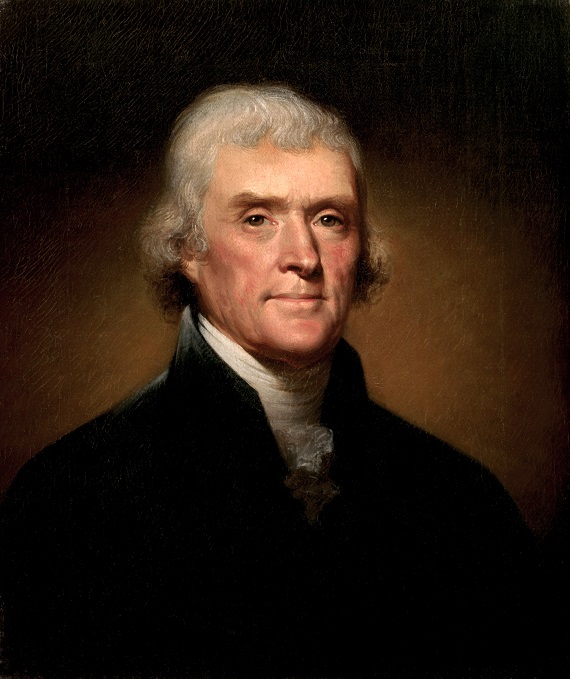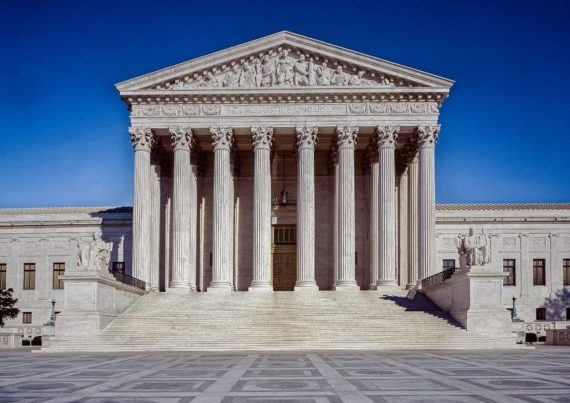After giving a talk on Jefferson’s conceptions of reason and the moral sense at UVa (11 Apr. 2015), a gentleman brought up the issue of slavery and mentioned how he found unpalatable Jefferson’s repeated claim, especially later in life, that he refused to do more to eliminate the heinous institution because the time was not yet right. The gentleman, of course, was merely repeating a sentiment expressed less dispassionately by numerous Jeffersonian scholars—e.g., Peter Onuf, Annette Gordon-Reed, and Paul Finkelman—and a sentiment that is part of the narrative of Jefferson’s life at Monticello and Poplar Forest. My reply to the gentleman was that Jefferson’s response concerning timeliness was honest and wholly fitting. He believed always that slavery was obliquitous, but he came to recognize that it was inopportune to act on its abolition. Moreover, he was likely right to believe so.
For Jefferson, morally correct action is sensual, not rational. Following moral-sense theorists of his day—e.g., Lord Kames and Frances Hutcheson—he posits the existence of a sensory faculty for moral judgments. That faculty works like seeing. One need not be trained to see—it occurs naturally for organisms with eyes—yet one might need some training to apprehend what one sees. Likewise, the moral sense for Jefferson forms immediate and relatively fault-free judgments concerning right action in scenarios—reason is unneeded—yet it is sometimes necessary for reason to aid moral judgment by showing that the time is inopportune to do the right thing. Apropos of slavery, Jefferson learned the hard way that that opprobrious institution would not be eradicated in his lifetime. So great was the opinion on the eradication of slavery divided among Americans that the unity of the confederation of states was at stake. The time was not right. What was applicable to slavery was applicable to other critical issues, even life itself—the focus of this essay.
By the fifth century B.C., the Ancient Greeks, whom Jefferson read often and generally in Greek, developed and instantiated a concept that would become part of the warp and woof of their culture: kairos (“timeliness” or “opportunity”; we have today the somewhat redundant term “kairotic moment”). I use “developed” because the term was used by Homer (fl. 775 B.C.) to mean “mortal,” and only took on “timeliness” with the work of Theognis (fl. sixth century B.C.).
Examples of kairos can be found in all aspects of Ancient Greek culture: rhetoric, politics, athletics, tragedy, philosophy, and medicine. The Hippocratic author of Precepts distinguishes between chronos, time considered in its expanse, and kairos, time considered as a moment (usually critical), thus: “Time (chronos) is that in which opportunity (kairos) exists, and opportunity is that in which there is not much time. Healing is a matter of time, but at times also a matter of opportunity.” In his Fables, Aesop writes of the god Kairos: “Running swiftly, balancing on the razor’s edge, bald but with a lock of hair on his forehead, he wears no clothes; if you grasp him from the front, you might be able to hold him, but once he has moved on not even Zeus himself can pull him back: this is a symbol of Kairos, the brief moment in which things are possible.” In Aiax, Sophocles writes of the right time (es auton kairon) for burial of Aiax’s corpse. In Republic, Plato speaks of the right moments (tous kairous kalos apergazesthai) for doing well one’s work. Pausanias in Description of Greece tells of the altar and statue of the god Kairos near the gate to the stadium. “Quite close to the entrance to the stadium [at Olympia] are two altars; one they call the altar of Hermes of the Games, the other the altar of Kairos (Opportunity).” Athletic excellence, like moral excellence, is often a matter of seizing opportunity when it briefly appears.
Kairos was a feature of Greek culture that is readily cognizable to anyone acquainted fully with those ancients. Much of the philosophy of Jefferson’s time, for example, was an appropriation, with modifications, of Greek naturalism, especially Aristotelian or Stoic naturalism, of which kairos was a significant part. In his Nicomachean Ethics, for illustration, Aristotle writes that morally correct action is a matter of acting “for the right reasons, with the right people, … in the right way, at the right time, and for the right length of time.” In Jefferson’s day, Pierre Charron, for instance, writes in On Wisdom, a book Jefferson often recommended to friends for its moral content. “Doing Things pertinently and properly, in due Method, and in Time, and with Measure, is the Effect of Wisdom, and that which makes the Soul and its Attainments truly valuable.” Jefferson, like others fully acquainted with Ancient Greek culture, appropriated and instantiated kairos in his manner of punctilious, efficient living.
Kairos fashioned Jefferson’s views on later-in-life inaction concerning the eradication of slavery, preference of embargo versus war with England in his second term as president, the notion of an “empire for liberty” in the foreseeable future, and people not being democratized (e.g., the French, American Indians, and Russians) before they are ready to be democratized, inter alia.
Kairos was also behind his belief that the generations of humans were roughly independent of each other. That is why he both countenanced constitutional renewal with each generation—there is, he writes to Washington (7 Nov. 1792), “the expediency of a constitution alterable only by a special convention” at specified intervals of time—and embraced the principle that no generation should be bound to the debts of the prior generation, because “the earth belongs in usufruct to the living” (TJ to James Madison, 6 Sept. 1789).
There is another appropriation, a singular appropriation, of kairos that Jefferson made. It concerned the right time to die. That he got from his reading of Stoicism through the works of Aurelius, Seneca, who took his life presumably at the behest of Nero, and especially Epictetus and the eclectic/skeptic Cicero, who like Jefferson read the Stoics especially in trying times. In a letter to his pupil Lucilius (LXX), Seneca states that when the time is right, one who has lived the right sort of life will choose the right sort of death. “Everyone ought to make his life acceptable to all others, but his death to himself. It is the best death that pleases us.” Epictetus in Discourses (IV.106) gives more straightforwardly the argument. When the Olympic Games are over, he says, certain spectators always linger with the vain, greedy hope of still seeing athletes compete. It is the same with life. Many hold on to life, when the time for them to depart has come. “Make room for others. Others still must be born, just as you were born,” writes Epictetus. “Once born, they must have land, houses, and provisions. If the first-dwellers do not move along, what is left for those who follow? Why are you insatiate? Why are you unsatisfied? Why do you crowd the cosmos?”
For the Stoics, thus, there is not only a right way to live— actions always done opportunely—but also a right time to die, viz., what might be dubbed the Stoic argument against esuriency, or greediness.
Jefferson was clearly aware of the Stoic argument against esuriency—the general human tendency to cling rapaciously to life at the expense of younger generations of humans. That too followed from his embrace of kairos. To Benjamin Rush (17 Aug. 1811), he writes, “There is a fulness [sic] of time when men should go, and not occupy too long the ground to which others have a right to advance.” To John Adams (1 Aug. 1816), he says, “There is a ripeness of time for death, regarding others as well as ourselves, when it is reasonable we should drop off and make room for another growth. When we have lived our generation out, we should not wish to encroach on another. I enjoy good health: I am happy in what is around me, yet I assure you I am ripe for leaving all, this year, this day, this hour.” To Henry Dearborn (17 Aug. 1821), he states: “Man, like the fruit he eats, has his period of ripeness. Like that, too, if he continues longer hanging to the stem, it is but an useless and unsightly appendage.” To Mrs. Katherine Duane Morgan (26 June 1822), he says: “Time, which wears all things, does not spare the energies of body and mind of a presque octogenaire. While I could, I did what I could, and now acquiesce cheerfully in the law of nature which, by unfitting us for action, warns us to retire and leave to the generation of the day the direction of its own affairs.”
It is difficult in such letters to claim that Jefferson, like the Stoics, is unequivocally endorsing suicide. He is clearly arguing both for a ripe time for certain types of useful actions (e.g., political involvement) as well as for a ripe time for recognition that one, due to age or inutility, is now more of a hindrance than a benefit to others, and the latter is not unequivocal endorsement of suicide. Nevertheless, when he was waked at 9 a.m. in the morning of July 4, 1826—exactly 50 years after the Declaration of Independence—to take his laudanum, he said, “No, doctor, nothing more.” Here it is impossible to believe that he did not have in mind both the Greek notion kairos and the Stoic argument against esuriency.







Any one who voted republican and sold out our ancestors blood by doing so cut your own throats with do haste.
Excellent, Mark. Well written and very much needed.
Thank you!